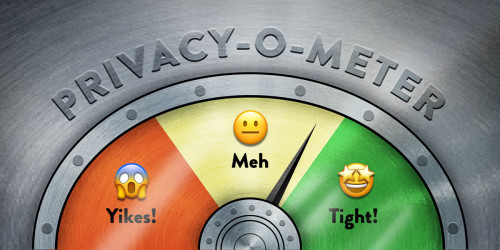Every day, corporations track our movements through license plate scanners, building detailed profiles of where we go, when we go there, and who we visit. When they do this to us in violation of data privacy laws, we’ve suffered a real harm—period. We shouldn’t need to prove we’ve suffered additional damage, such as physical injury or monetary loss, to have our day in court.
That's why EFF is proud to join an amicus brief in Mata v. Digital Recognition Network, a lawsuit by drivers against a corporation that allegedly violated a California statute that regulates Automatic License Plate Readers (ALPRs). The state trial court erroneously dismissed the case, by misinterpreting this data privacy law to require proof of extra harm beyond privacy harm. The brief was written by the ACLU of Northern California, Stanford’s Juelsgaard Clinic, and UC Law SF’s Center for Constitutional Democracy.
The amicus brief explains:
This case implicates critical questions about whether a California privacy law, enacted to protect people from harmful surveillance, is not just words on paper, but can be an effective tool for people to protect their rights and safety.
California’s Constitution and laws empower people to challenge harmful surveillance at its inception without waiting for its repercussions to manifest through additional harms. A foundation for these protections is article I, section 1, which grants Californians an inalienable right to privacy.
People in the state have long used this constitutional right to challenge the privacy-invading collection of information by private and governmental parties, not only harms that are financial, mental, or physical. Indeed, widely understood notions of privacy harm, as well as references to harm in the California Code, also demonstrate that term’s expansive meaning.
What’s At Stake
The defendant, Digital Recognition Network, also known as DRN Data, is a subsidiary of Motorola Solutions that provides access to a massive searchable database of ALPR data collected by private contractors. Its customers include law enforcement agencies and private companies, such as insurers, lenders, and repossession firms. DRN is the sister company to the infamous surveillance vendor Vigilant Solutions (now Motorola Solutions), and together they have provided data to ICE through a contract with Thomson Reuters.
The consequences of weak privacy protections are already playing out across the country. This year alone, authorities in multiple states have used license plate readers to hunt for people seeking reproductive healthcare. Police officers have used these systems to stalk romantic partners and monitor political activists. ICE has tapped into these networks to track down immigrants and their families for deportation.
Strong Privacy Laws
This case could determine whether privacy laws have real teeth or are just words on paper. If corporations can collect your personal information with impunity—knowing that unless you can prove bodily injury or economic loss, you can’t fight back—then privacy laws lose value.
We need strong data privacy laws. We need a private right of action so when a company violates our data privacy rights, we can sue them. We need a broad definition of “harm,” so we can sue over our lost privacy rights, without having to prove collateral injury. EFF wages this battle when writing privacy laws, when interpreting those laws, and when asserting “standing” in federal and state courts.
The fight for privacy isn’t just about legal technicalities. It’s about preserving your right to move through the world without being constantly tracked, catalogued, and profiled by corporations looking to profit from your personal information.
You can read the amicus brief here.













